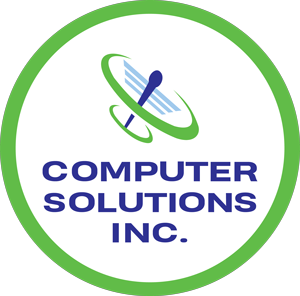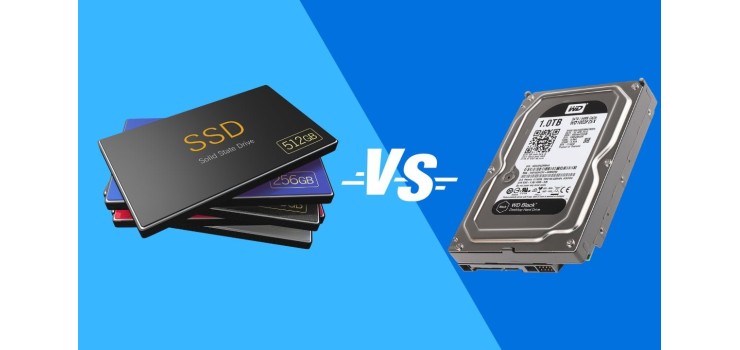Table of Contents
Introducing SSDs and HDDs
Solid State Drives (SSDs)
SSDs use solid-state flash memory to store data. They rely on microchips to read and write data. This happens because they don’t have any moving parts. Compared to HDDs, this architecture enables quicker data access and higher performance.
Hard disk drives (HDDs)
On the other hand, HDDs read and write data using a mechanical arm and spinning magnetic platters. They have been the standard method of computer storage. Also, they are more affordable than SSDs while providing larger storage capabilities.
Performance Comparison
Speed and Responsiveness
SSDs are popular for their astounding responsiveness and speed. They provide quicker system startup times, rapid application launches, and responsive application performance. HDDs, on the other hand, operate more slowly than SSDs. This causes slower program loading and longer boot times.
Random Access Times
SSDs perform well in random access times. This enables almost immediate data recovery. HDDs have slower random access times because of increased access latency. This is brought on by their mechanical design.
Sequential Read and Write Speeds
SSDs offer noticeably quicker sequential read and write speeds. This makes them perfect for projects requiring the transfer of huge files. SSDs are also helpful in handling multimedia content. Conversely, HDDs have slower sequential rates. Still, they provide enough performance for the majority of daily tasks.
Capacity and Cost Consideration
Storage Capacity
When you are deciding which storage solution suits your needs, considering storage capacity is a must. If we compare SSD vs. HDD, we can see HDDs have larger storage capabilities. Also, HDDs offer a more affordable choice.
This especially matters if you need terabytes of storage for large media libraries or data-intensive applications.
Price Per Gigabyte
HDDs are more affordable than SSDs in terms of price per GB. If we want to compare SSD vs. HDD, HDDs are more affordable. This matters for those looking for greater storage capabilities.
However, SSD costs have been falling over time. Hence, they are becoming more and more accessible to customers that place a premium on speed and performance.
Reliability and Durability
Solid-State Construction vs. Moving Parts
HDDs are more prone to physical harm and mechanical malfunctions. This happens because they feature mechanical parts, such as spinning disks and moving read/write heads.
Comparing SSD vs. HDD, SSDs are completely mechanical. Hence, it makes them more resilient to shock, vibration, and unintentional drops.
Impact Resistance
SSDs can endure shocks and vibrations better than HDDs. Therefore, they are more resistant to physical impact. Plus, SSDs are a popular alternative for those that want longevity, such as people who often transport their laptops, due to this feature.
Longevity and Lifespan
HDDs have a longer lifespan in terms of data retention than other storage devices. HDDs and SSDs can both last for many years. However, due to their limited write cycles, SSDs may eventually wear out and perform worse. Additionally, compared to older generations, current SSDs have a substantially longer lifespan and enhanced durability.
Power Consumption and Noise Levels
Energy Efficiency
SSDs use less energy than HDDs do. Since SSDs don’t have any moving parts, they use less energy. So it results in longer battery life for laptops. Also, your desktop system requires lower power needs.
Silent Operation
The moving mechanisms and spinning platters of HDDs make audible noise. SSDs offer a silent computing environment since they are vibration- and noise-free.
Use-cases and Recommendations
Gaming and High-performance Computing
SSDs offer improved speed, so it lowers load times. Also, it enhances the gaming experience for gamers. It is suitable for people working on resource-intensive projects like video editing or 3D rendering.
Data Storage and Archiving
HDDs are the best choice for users who need a lot of storage for data-intensive programs. This will also be helpful if you require backup needs due to their bigger storage capacities. They provide a reasonable option for the long-term storage of data.
Mobile Computing and Portability
SSDs are the suggested option for consumers that value portability and sturdiness. They are ideal for laptops and other portable devices due to their durability to physical impact, reduced power usage, and quiet operation.
Why Choose CSI’s Storage Solutions?

SSDs
A large selection of SSDs is available from reliable manufacturers through Computer Solutions Inc. They are famous for providing high performance, dependability, and compatibility. CSI has the ideal storage option for you. They have everything available if you need a low-cost SSD for regular computing or a fast SSD for demanding workloads.
HDDs
CSI offers a wide range of HDDs with different speeds and storage capacities. Their HDD selections are designed to meet the demands of customers. This is a more expensive storage option for higher data volumes.
Related Terms: Apacer AS721 USB 3.2 Gen 2 USB-C Portable SSD Review
Conclusion
The best storage option must be selected if you want your computer to run at its best. Comparing SSD vs. HDD, SSDs are suitable for customers who prioritize performance and portability. Conversely, for consumers who need a lot of storage but are on a tight budget, HDDs are the best option. Computer Solutions Inc. (CSI) provides a wide selection of storage options. You can be sure to get the parts you require. In order to choose wisely between SSDs and HDDs, you need to consider your needs, performance expectations, and financial limitations.



Comments
There are no comments for this Article.